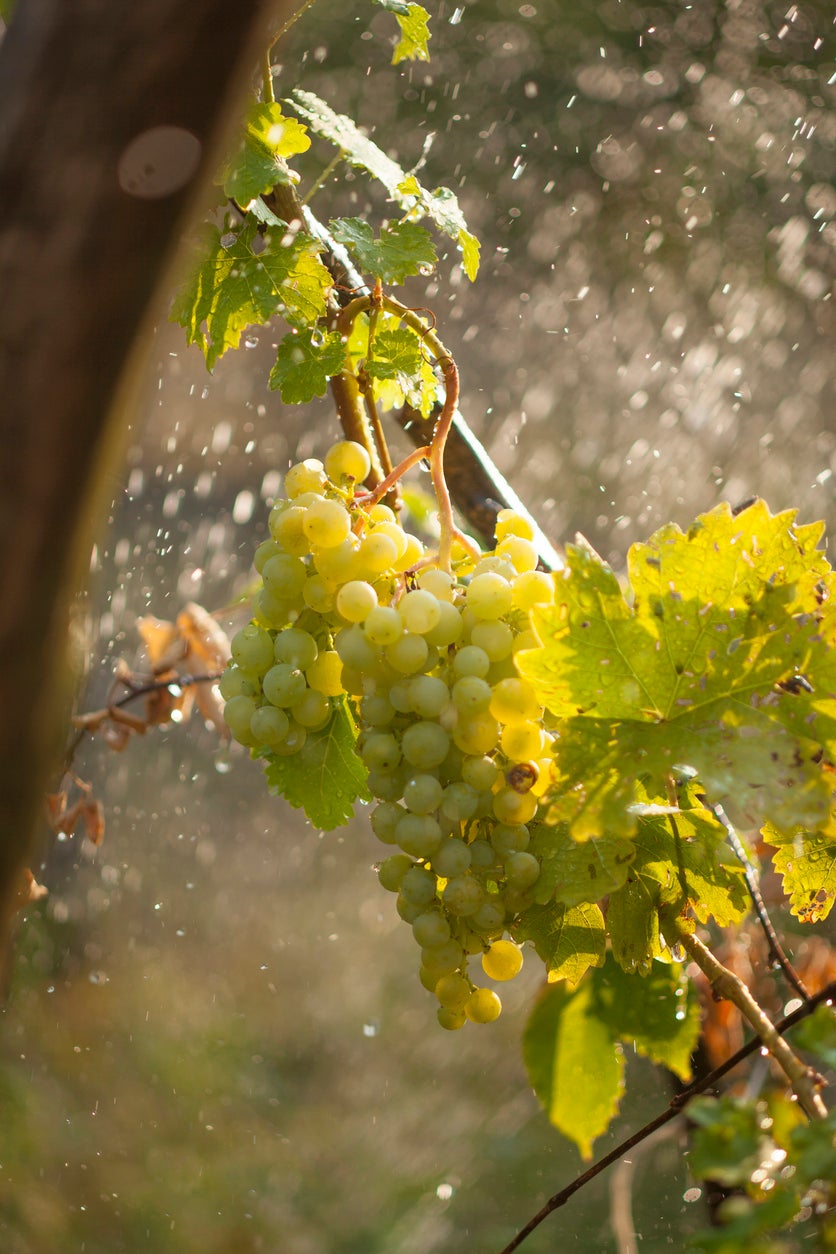Tips For Irrigating Grapes – How Much Water Do Grapes Need


Growing grapevines at home can be an exciting endeavor for many gardeners. From planting to harvest, the process of promoting healthy growth can be quite elaborate. To produce the best crop possible, those wishing to grow grapes will need to carefully consider garden routines such as pruning and fertilization. Irrigation procedures are also a vital aspect. Learning more about properly irrigating grapes can promote more productive harvests each season.
How Much Water Do Grapes Need?
As with any other planting, watering grapes and maintaining adequate moisture levels will directly impact plant health. Grapevine irrigation can vary depending upon the conditions in each growing zone. However, there are some key aspects on which to focus.
When choosing how and when to water grapevines, it will be important to maintain balance. Ideally, the soil should remain adequately moist throughout the entire growing season. This means that water should be available to the plants’ roots at any time.
Drought stress can manifest in grapevines in a wide variety of ways. First, growers may observe the wilting of leaves or tendrils of the plant. If the need for water is too severe, the vines’ flowers may also drop and result in the uneven formation of clusters. Signs of too little water may also include the yellowing of leaves, as well as fruit drop.
Professional grape growers often use periods of water stress to encourage or produce the desired qualities in the mature fruit. However, these techniques will require great familiarity with the cultivar being grown and with the growth timing of each grape plant. For this reason, it is best that most home growers do not attempt these water stress techniques.
Though the grapevines will require consistent moisture, it is important to note that this does not mean that the soil should be excessively wet. Excessively wet soils that are the result of over-irrigation or poor drainage will promote the decline of the plant. These soil conditions can promote root rot of the plants, increase the likelihood of disease in the vines, and cause the loss of soil nutrients.
In irrigating grapes, make certain to avoid overhead spraying. Watering in this manner can promote the development of fungal and bacterial diseases. For many, drip irrigation hoses, which deliver water directly to the root zone, are the best option. Though the need for irrigation will vary depending upon rainfall, most plantings will require about 1 inch (2.5 cm.) of water each week of the growing season.
Gardening tips, videos, info and more delivered right to your inbox!
Sign up for the Gardening Know How newsletter today and receive a free copy of our e-book "How to Grow Delicious Tomatoes".

Tonya Barnett has been gardening for 13 years. Flowers are her passion. She has transformed her backyard into a cut flower garden, which she regularly chronicles on her YouTube channel http://www.youtube.com/@tonyawiththeflowers.
-
 Looking For Plants To Give You The Soft And Fuzzies? Try These 5 Fuzzy Leaf Plant Options
Looking For Plants To Give You The Soft And Fuzzies? Try These 5 Fuzzy Leaf Plant OptionsLovers of texture, drama, silver foliage and tactile plants will adore these special sensory garden additions. These fuzzy leaf plant options will leave you all aglow
By Susan Albert
-
 Get Ready For A Summer Of Hummers! Grow These Full Sun Hummingbird Plants and Flowers
Get Ready For A Summer Of Hummers! Grow These Full Sun Hummingbird Plants and FlowersIf you’re lucky enough to enjoy a sunny backyard, make sure you are maxing out on your pollinator opportunities and grow these full sun hummingbird plants and flowers
By Tonya Barnett